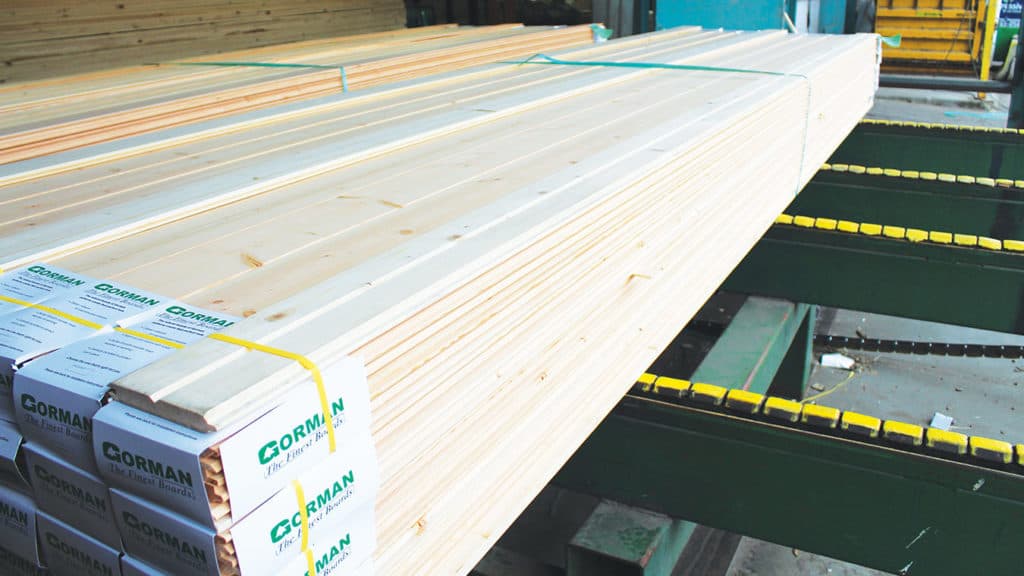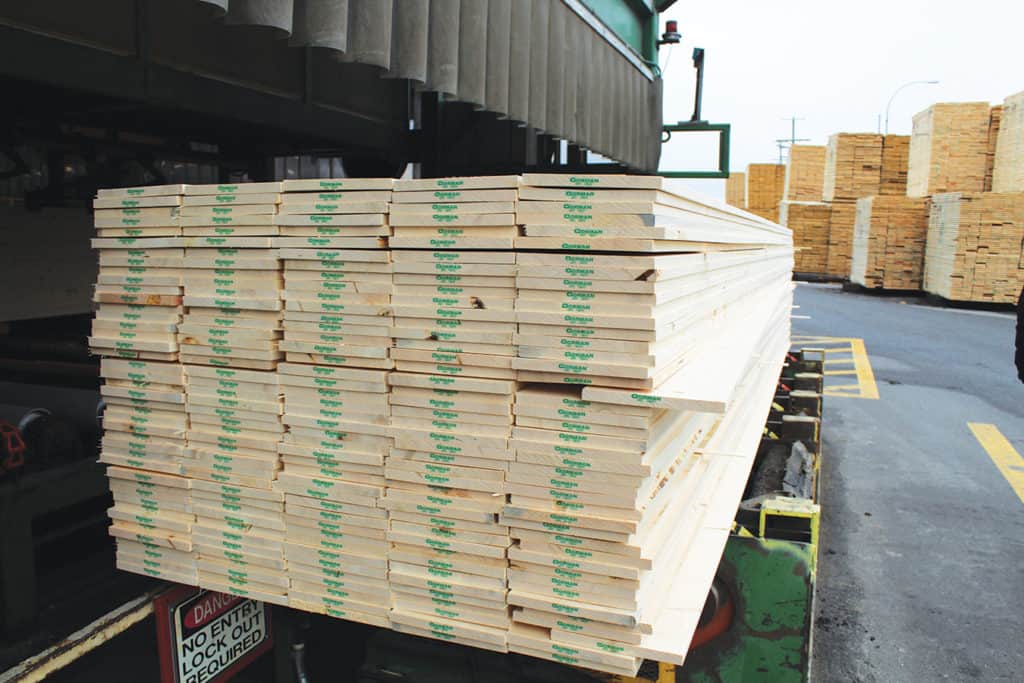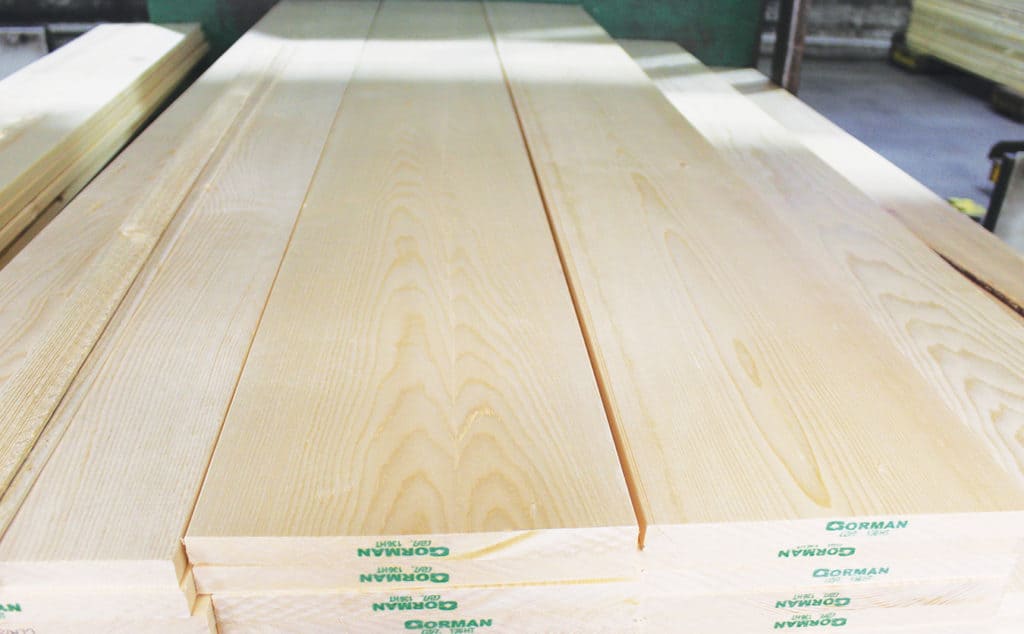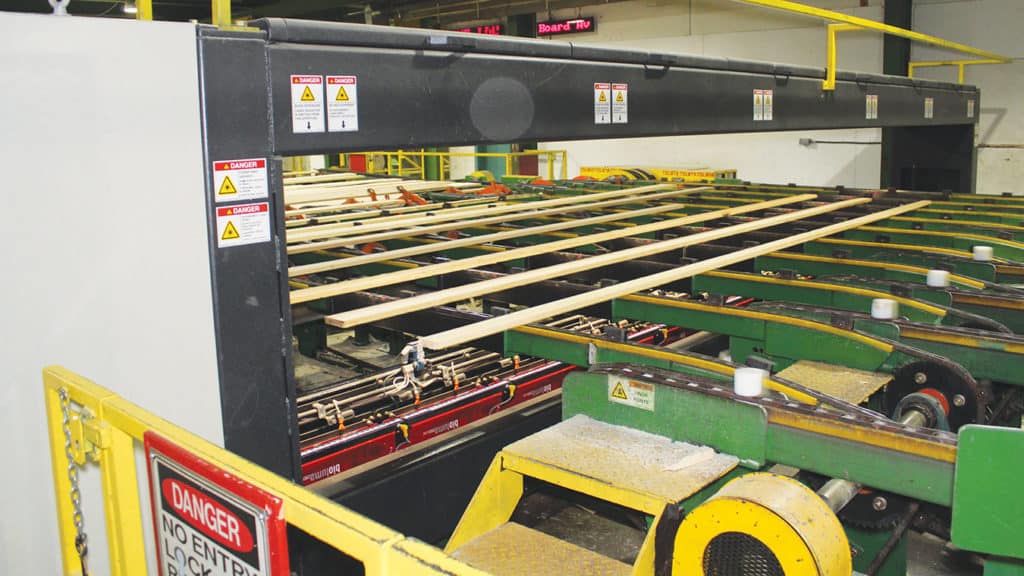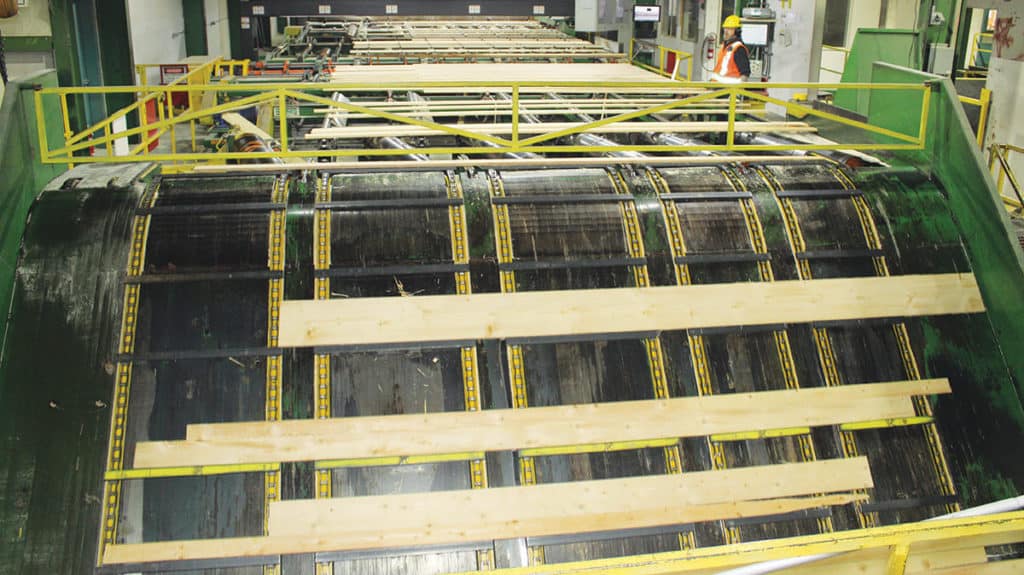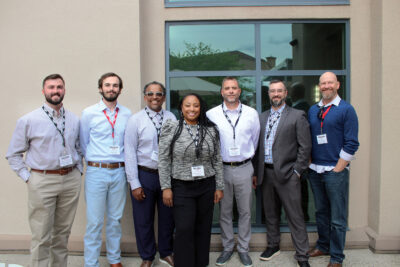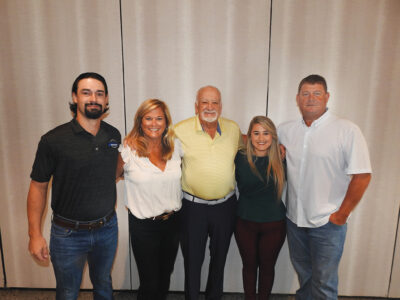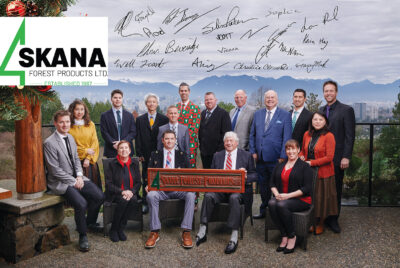Westbank, BC–A deep freeze that destroyed the fruit trees of two brothers 70 years ago led to the development of Gorman Brothers Lumber Ltd., a leading lumber supplier that serves a worldwide market.
The company specializes in production of one-inch Spruce and Lodgepole Pine boards–S4S or pattern stock. All products are graded above the National Lumber Grades Authority or Western Wood Products Association industry standards and have “the Gorman edge,” a finished edge produced by high-speed moulders that is smooth and splinter resistant.
All together, over 1,200 employees work across the 127 acres that are devoted to lumber processing. Customers are two-step distribution and industrial. “Each year, we continue to grow and we continue to focus on reinvestment and technology,” said Brent Brownmiller, vice president of sales and marketing. Exporting to over 30 countries is done via a third party.
The “Gorman group of companies” is spread across five facilities–the main office and sawmill, located here in Westbank, BC; Downie Timber Ltd. in Revelstroke, BC; Canoe Forest Products Ltd. in Canoe, BC; Lumby Pole Division in Lumby, BC; and Gorman Reman & Reload in Oroville, WA.
The Westbank mill primarily produces one-inch Spruce-Pine boards, while the Canoe facility makes plywood. Downie and Selkirk Cedar mainly process Western Red Cedar, and also cut Douglas Fir, Hemlock and Spruce. The Lumby Pole Division makes Western Red Cedar poles that are mainly used for hydro projects, pilings and stilts. Nothing goes to waste here–all residuals are used to fire up the company’s 24 dry kilns, chips go to pulp mills, and sawdust goes to be turned into wood pellets.
Each mill procures logs from roughly a 220-mile radius. Canoe Mill has a larger quota Tree Farm License which serves as an assembly point for the group. Logs are delivered to that central point, then the right log is delivered to the right mill for manufacturing.
So what are the advantages to the species that Gorman Brothers uses? “The Spruce Lodgepole is produced here in the Okanagan, a semi-arid area and the growth rings are quite tight compared to white wood that is grown elsewhere that has a lot of rainfall, so this region makes a really good pole,” explained Cam Cook, sales manager.
Brownmiller remarked: “Western Red Cedar has its natural abilities to resist rot and termite damage, and it withstands UV rays and moisture. The Spruce and Pine that we produce out of the Westbank mill maintains its stability, it doesn’t move as much but that’s primarily based on how we finish the products. We dry everything to the optimum moisture content. We finish it using specialty type of equipment but you need to finish it, stain it or paint it to protect it from the natural sunlight and moisture.”
Gorman Brothers does a great deal of custom work. “The amount of custom work that people are asking for is growing because they’re looking to reduce inventories,” Brownmiller said. “They are looking to increase their returns.”
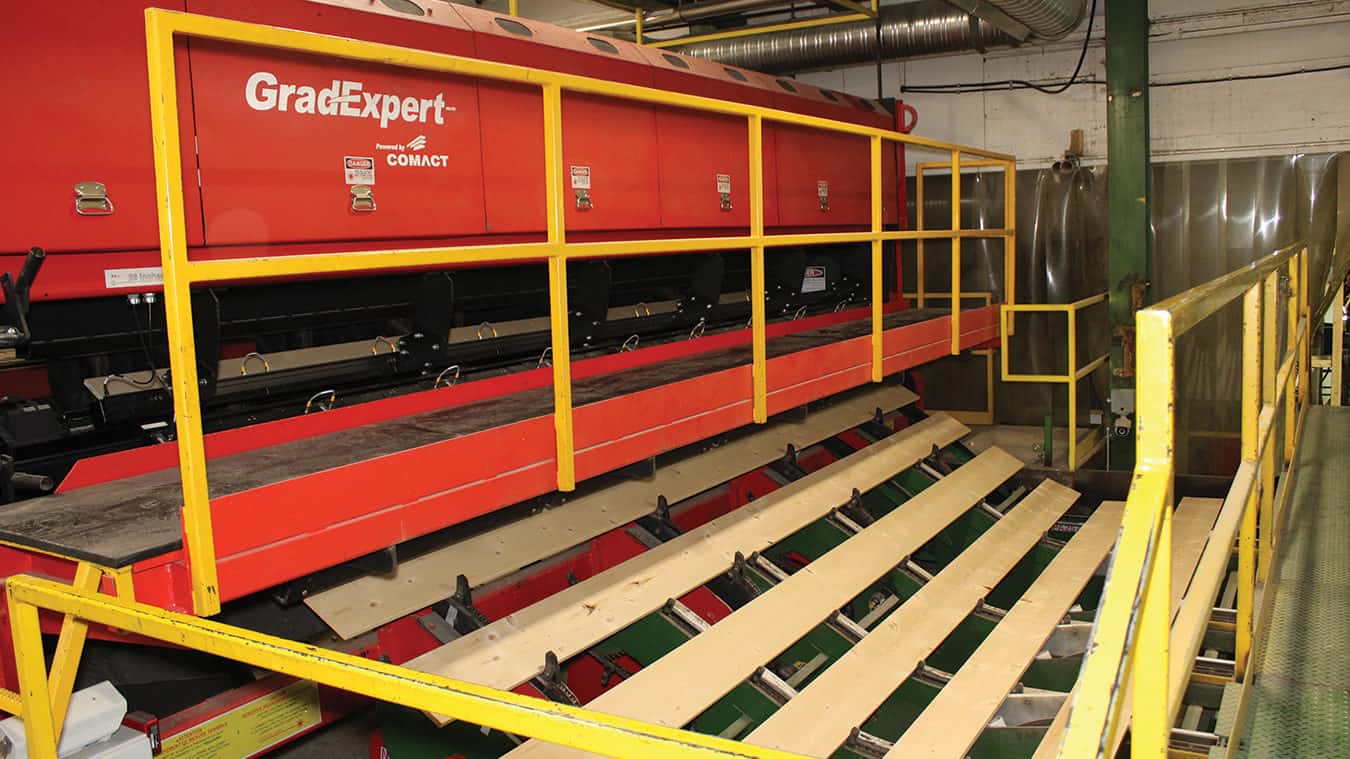
As new products are considered, a “Ross Initiatives team,” named after co-founder Ross Gorman, assesses the potential for Recovery, Optimization, Sustainability and $ (profitability). “We basically prove it out and we will launch it,” Brownmiller said. “Just recently, we started producing Cedar 4×4 and SPF Dimension out of our Downie mill. We’ve partnered with Coeur d’Alene Wood and supply product to them where they manufacture a natural Barn Wood, so as the need requires we’ll launch new products.”
The company’s pattern boards are popular, with the penny gap, nickel gap and reversible options being especially good sellers.
But no matter how good a product is, nothing will come of it unless it is marketed properly, Brownmiller pointed out. “I think it always comes down to our customers demand our products,” he said. “I think our future is very bright because everybody is always trying to catch up to what we do, but we’re not just standing and doing the same thing. We are constantly trying to make it better.”
Gorman Brothers prides itself on staying on the cutting edge of technology, such as scanner vision systems. “We’ve invested heavily in scanners, end sawmill scanners, planer scanners and knowing that it’s the future,” Cook said. “Our focus is to always get more accurate, flatter and better,” Brownmiller added.
It’s all a long way from the winter of 1949-50, when brothers John and Ross Gorman decided to make and sell fruit boxes to provide for their families after cold weather decimated their orchards. That led to them establishing a small sawmill and 11 years later, opening Oroville Bin & Pallet on the U.S. side of the border to serve the American market.
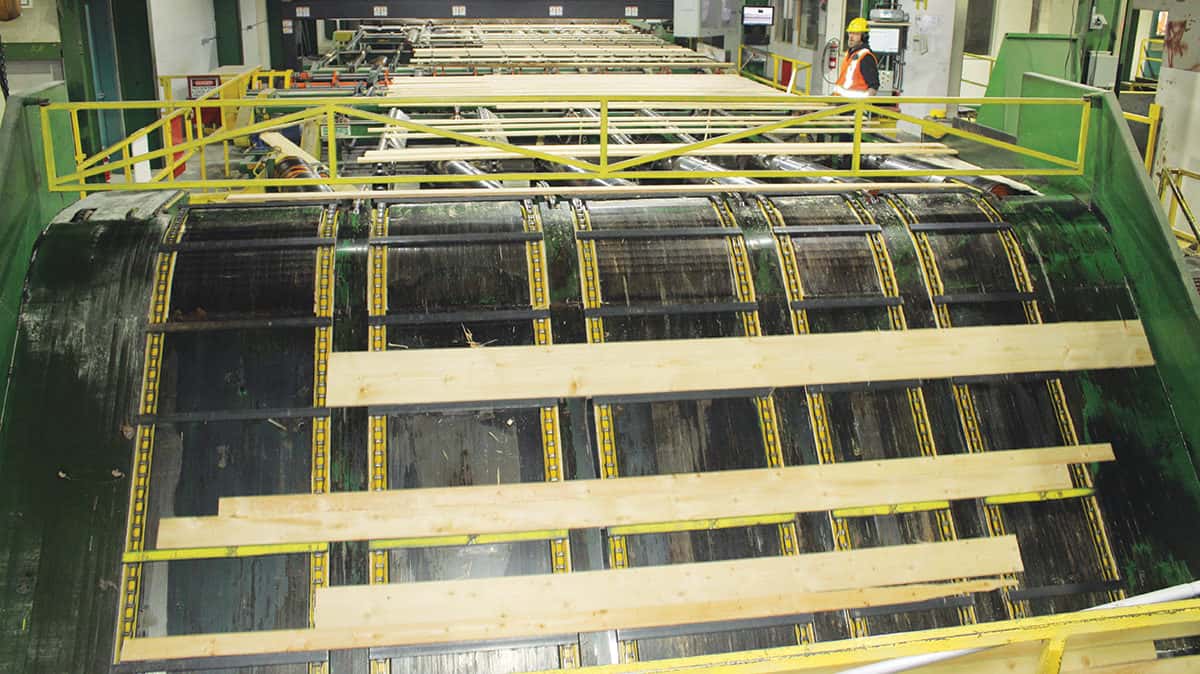
Several acquisitions and many years later, the company still is run by the principles that co-founder Eunice Gorman enunciated: “From the beginning, John, Edith, Ross and I believed strongly that God’s principles should form the foundation of our business. Early on, we adopted the Christian principle that ‘a good name is more desirable than great riches.’ ”
Brownmiller remarked: “They treated employees like their own kids. We always look after the employees first, and to this day that continues.”
Cook added: “The employees appreciate it so much. In a couple of instances, they’ve all come in and worked on the weekends for free to donate some production time back to the Gorman family.”
Gorman Brothers Lumber, as well as its employees, supports numerous local charities and often lends a hand when a community project needs help. In 2016, for example, the Kelowna Gospel Mission asked for the donation of some lumber so that an old deck at a women’s shelter could be repaired. When Gorman Brothers employees saw the extent of the deck’s disrepair, they tore down the original deck and built a new patio space in its place.
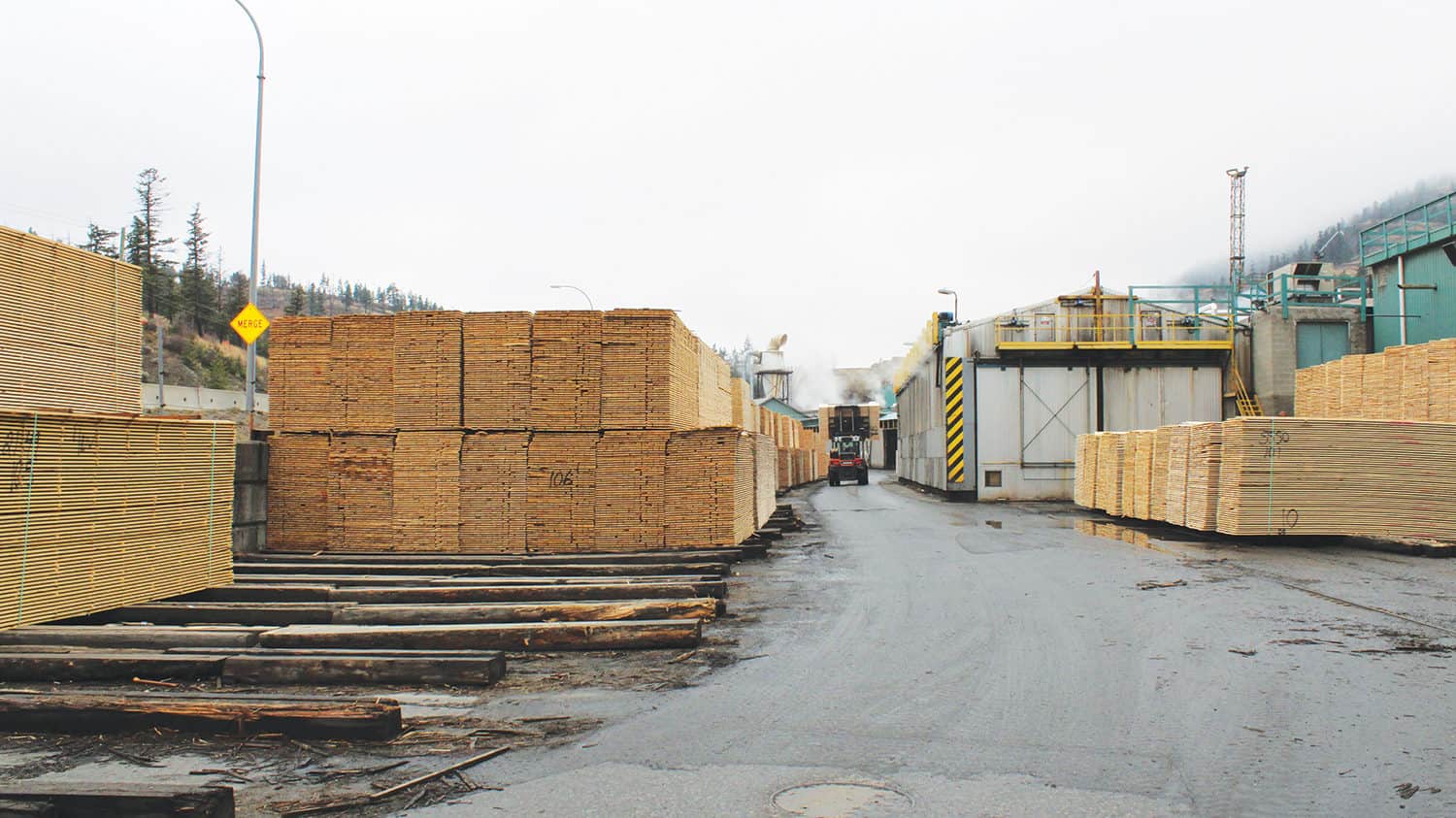
Nick Arkle manages the company today. Arkle gives “Nick Talks” to employees four times a year so that they know where the company stands financially and otherwise. “He is very approachable,” Brownmiller said. “All the employees have his cell phone number, so they can phone or text him, or email. He is very involved. Nick comes to NAWLA and he works the booth. He is in the trenches with us. He cares. It makes a huge difference.”
Key personnel also include Mark Pickering, chief financial officer at The Gorman Group; Jeremy Griffin, mill manager of the Westbank mill; Angus Woodman, mill manager for Downie Timber Ltd.; Andy Anderson, mill manager for Canoe Forest Products Ltd.; Marcello Angelozzi, general manager for the Northern Division; and Will Verner, manager for Oroville Reman & Reload.
Gorman Brothers supports and attends the North American Wholesale Association Traders Market and Montreal Wood Convention. It also is a member of Council of Forest Industries, APA–The Engineered Wood Association and BC Wood.
More information is available at www.gormanbros.com.
Editor and fourth generation of the Miller family to work at Miller Wood Trade Publications.
- Zach Millerhttps://millerwoodtradepub.com/author/zach-miller/
- Zach Millerhttps://millerwoodtradepub.com/author/zach-miller/
- Zach Millerhttps://millerwoodtradepub.com/author/zach-miller/
- Zach Millerhttps://millerwoodtradepub.com/author/zach-miller/
